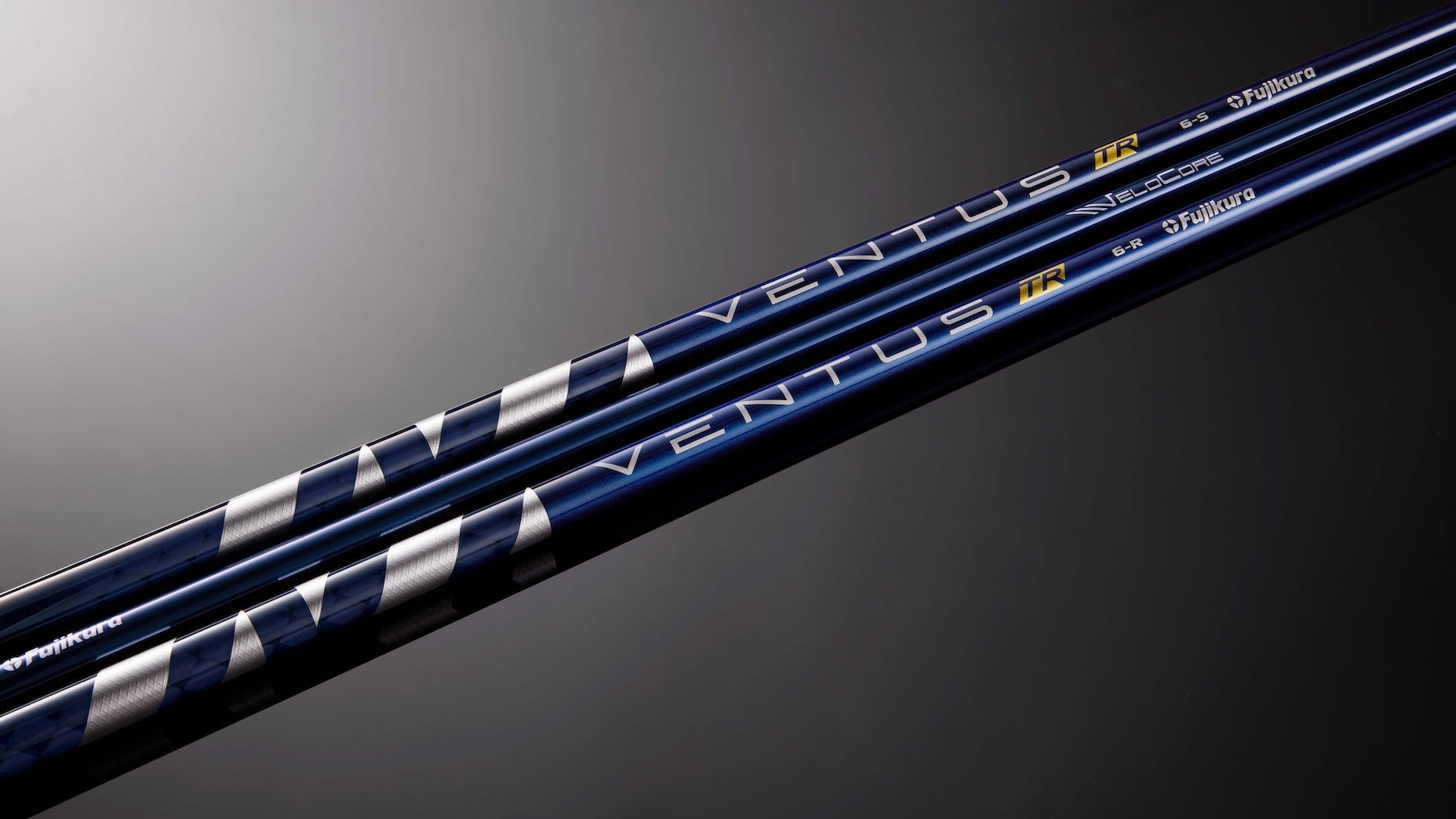Improving upon a wildly successful piece of gear is never easy, but it’s part of the job when you design golf equipment for a living.
Fujikura knows first hand. For the past few years, the shaft manufacture has watched its popular Ventus line explode at retail and become the most-played driver and wood shaft on the PGA Tour during the 2020-21 season. With multiple profiles in the lineup — along with an HB product — Ventus was already positioned to make noise in 2022.
But here’s the thing with gearheads: They’re always looking for the next big thing.
“One of the things we’ve continued to hear since Ventus was released was how we were going to top it,” said Spencer Reynolds Fujikura’s product marketing manager. “My very blunt answer has always been the same: That’s a great question. It was always going to present a very interesting challenge for our engineering team. Because it’s so successful, there’s a lot of people this line has touched in a positive way, so you have to be cautious not to derail that, while also sticking to our core mission, which is to never sit idly by and always get better. It’s a challenge.”
In other words, find a way to improve without altering the sturdy foundation that makes Ventus great.
After speaking with tour players, fitters and dealers, Fujikura took the feedback and conducted a series of deep-dive analytic sessions using a first-of-its-kind ENSO vision system to determine if any of the requests for a future Ventus were feasible. And if they were feasible, how much would they be able to improve upon the current product.
What Fujikura learned almost immediately was how important its VeloCore technology was to the future success of a new Ventus product. The proprietary construction is designed with a multi-material bias core and full-length pitch that boost clubhead performance by generating an efficient energy transfer at impact.
“What we found is that VeloCore still offers the best platform for consistency, performance and feel for all players,” Reynolds said.
Designers also learned that while Ventus was superior in certain areas, there was still room for improvement in the stability department. And just like that, Ventus TR Blue was born.
“With Ventus TR, we have the ability to crank up the stability even further, particularly during the transition,” said Reynolds. “During that move from the top of the backswing and transition in the downswing, that’s where the sudden change in direction — even if you have a smooth transition — takes on a lot of stress. We found it takes most of that stress in the midsection to handle section.”
Adding stability to a shaft can be accomplished by adding more material to the shaft, but doing so winds up altering weight and overall performance in a negative way. To achieve a more stable midsection and handle, without adding weight, Fujikura designers relied upon on an ultra-lightweight Spread Tow fabric sourced from Japan to reinforce the areas.
“When you talk about carbon fiber being in a toe, it looks like a strand of rope,” Reynolds said. “And when you braid that together, you start to see seams and cracks where the resin can pool, and that can compromise the stability when it takes on stress.
“Now imagine taking every single strand of thread out of that rope and ironing it flat into something we like to call ‘a tape.’ Weaving those strands together into something more closely resembling a basket weave pattern — you’ve now eliminated where resin can pool, and the shaft material gets stronger in all directions.”
The end result is a shaft composition that increases torsional stiffness by 10 percent in the midsection and handle, when compared to the previous mid-launch Ventus Blue profile, that translates to an improvement in overall consistency and stability.
From a cosmetics standpoint, golfers will be able to see the Spread Toe material right underneath the Ventus geometric decal. The overall look of the shaft was also altered from a deep blue to a royal blue with metallic flakes that pop in the sunlight. (It should be noted the color fades to black in the handle section.)
Similar to when Fujikura launched the original Ventus Blue profile in 2019 at The American Express, only a mid-launch Ventus TR will be available to tour players this week in Palm Springs. But Fujikura left the door ajar for other profiles to join the lineup down the road.
“We’ll start with the Blue and go from there,” said Reynolds. “One thing that we’re adamant about is any technological advancements that we find that can benefit the player, we’re definitely open to exploring that in other profiles as well. For now, the focus is on the singular piece, but it’s not outside the realm of conversation to see this technology makes its way into other products in the future.”
Fujikura Ventus TR ($350) will be available on Feb. 1 in a variety of weights and flexes, ranging from 56 grams to 88 grams and R2 up to X flex.
Want to overhaul your bag for 2022? Find a fitting location near you at GOLF’s affiliate company True Spec Golf. For more on the latest gear news and information, check out our latest Fully Equipped podcast below.
